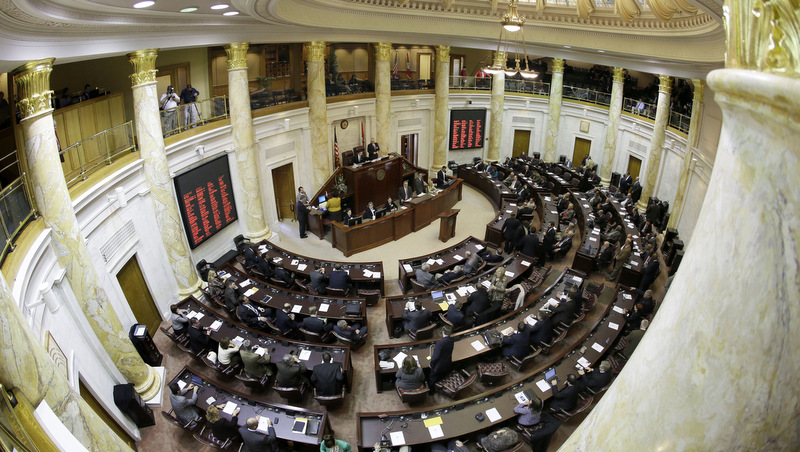
In Arkansas, a small but vocal coalition in the state House blocked, for the third time, a bill that would continue funding of the state’s “private option” Medicaid expansion. The rejection of the funding authorization endangers the health care coverage of approximately 87,000 of Arkansas’ poorest residents.
Funding bills in Arkansas requires a 75-percent “supermajority” in both houses in order to pass the legislature. On Thursday, the Arkansas House voted 72-25 for the bill — missing the threshold by just three votes. The House had voted 68-27 on the bill on Wednesday, and 70-27 on Tuesday. The House leadership indicated that the bill will be continuously brought up for vote until it passes. The bill passed the Arkansas Senate 27-8 on Thursday.
“We don’t have a problem with the majority of the legislature being for this. We don’t have a problem with a supermajority of the legislature being for this,” Arkansas Gov. Mike Beebe (D) told PBS NewsHour. “We don’t have a problem with the majority of Republicans and Democrats being for this. They are. But it takes 75 out of 100 House members and 27 out of 35 senators. So one senator or one House member could sway the entire — the entire effort.”
Arkansas’ “private option” is an alternative to the Medicaid expansion implemented under the Patient Protection & Affordable Care Act (ACA). The Medicaid expansion was designed to provide health care coverage for those above the poverty line and ineligible for Medicaid, but below the minimum income to qualify for a federal health care insurance subsidy.
After the Supreme Court ruled in June 2012 that the federal government cannot force states to accept the Medicaid expansion, a large number of republican governors and state legislators saw rejecting the expansion as a way to protest the ACA and the president, by proxy.
In a bipartisan move, Beebe and a coalition of Republicans and Democrats enacted the “private option,” which puts money obtained from the Medicaid expansion toward buying private health insurance for the state’s poor. This compromise allows Republicans to disclaim expanding Medicaid enrollment in Arkansas, and the Democrats refute that they expanded health care coverage.
This strategy has split state Republicans. While some argue that the administration of health care for the needy by private hands avoids the inefficiencies of the Medicaid program, others argue that the “private option” is the ACA by a different name. As the Republicans have made their reputation opposing the ACA in recent years, support for such a compromise is causing many to hesitate.
“Is Arkansas going to be an enabler for Obamacare and the Washington, D.C. interests who seek to impose their will upon us?” Republican House Majority Leader Bruce Westerman asked ahead of Tuesday’s vote. “Or, are we going to hold the line on behalf of the people of Arkansas in opposition to this dreadful law?”
Arkansas has the second-highest unemployment rate in the nation. Many argue that this recalcitrance by a small percentage of the legislature is needlessly endangering the state’s individual and business economic security.
“This additional expense will have a chilling effect on the growth plans of Arkansas businesses,” said Randy Zook, president and CEO of the Arkansas State Chamber of Commerce and Associated Industries of Arkansas. “With nearly 100,000 Arkansans still unemployed, those companies do not need to deal with added costs.”
Pennsylvania, Iowa and Virginia are also considering the “private option.”

